The content of the article
According to statistics, toothache sooner or later occurs in every second person, but these same statistics tell us that less than half of patients with toothache go to the doctor. How so? Why do people endure this discomfort to the last and go to the doctor when the torment becomes unbearable? In the minds of many of us sits the stereotype of the danger of the dentist, the expectations of pain and the fear of his treatment.
In fact, modern technologies make it possible to treat a tooth not just effectively, quickly and safely, but absolutely painlessly. First, the doctor treats the mucous membrane with spray in the place where it is going to make an anesthetic injection. The patient often does not even feel the puncture of the gums with a syringe, what can we say about other manipulations? Other people do not go to the dentist because they consider it expensive.But you have to admit to yourself - if the tooth already hurts, you cannot avoid going to the doctor (if you are not afraid to lose the tooth, of course!). And the sooner this visit takes place, the cheaper it will cost you. Therefore, it is better to go to the doctor as soon as you find yourself having some problems with your teeth or oral cavity. Most often, we are faced with a toothache - aching, acute, debilitating. Today we will talk about how and why this pain appears, how to get rid of it and what to do to relieve the tooth before visiting the doctor.
Why a toothache occurs
Toothache is considered to be one of the most intense and complex, since a huge number of nerve endings are located in the gums. But despite this, the causes of toothache can be quite extensive. Consider the main ones.
- Caries. This is one of the most common causes of toothache. Caries is a pathogenic destruction of a tooth by harmful microorganisms. Caries begins with a slight destruction of the tooth enamel - yellow or whitish spots may appear on the surface. Further, the affected area increases, caries penetrates deep into, dentin eats millimeter by millimeter.Usually, with such an “average” caries, a person already goes to the doctor and the nerve can still be saved. If caries becomes deep, it is often accompanied by inflammation of the nerve - pulpitis. Also, a patient with deep caries may begin to crumble his teeth, there is an unpleasant smell from the mouth, the black hollow itself is almost always noticeable to the naked eye. Caries occurs when a combination of three conditions - poor heredity, poor hygiene, lack of trace elements in the body. Pain with caries has a characteristic feature - it is usually throbbing, lasts no more than three minutes, it can occur when drinking cold ice cream, hot coffee, sour fruits, sweets, etc.
- Pulpitis. If caries penetrated the root of the tooth so deeply that inflammation struck the pulp, then a complication develops - pulpitis. The pain in pulpitis has its own characteristics - it is quite long and may not go up to 10 minutes, and sometimes it is permanent. Pain with pulpitis is considered the most acute, and here's why. The fact is that any tissue with inflammation increases in volume. And the pulp has nowhere to grow - it rests directly on the dentin. In fact, there is a strong spreading inside the tooth.This excessive pressure is the cause of such acute pain. If you touch a sick itch with just a finger, the pain will increase several times, you may feel as if you were electrocuted.
- Flux. This is another complication of caries and pulpitis, which develops in the periosteal part of the tooth and the bones of the jaw. In fact, this is the formation of a purulent sac that grows and affects a large area of neighboring tissues. Flux is characterized by high temperature and severe toothaches, which are not relieved by drugs. The pain can be given to the ear, neck, throat, eyes, severe swelling. Often, the flux opens up on its own, giving temporary relief. But the inflammatory process continues to evolve, pus is collected with a new force. In some cases, flux is accompanied by an increase in cervical lymph nodes - this indicates an extremely dangerous course of the disease.
- High tooth sensitivity. Sometimes it happens that pain manifests itself only when eating sour, sweet, cold and hot dishes. If the rest of the time the tooth doesn’t bother you at all, it’s most likely a matter of increased tooth sensitivity.This can occur against a background of damage to the tooth enamel - when the dentinal tubules remain naked. Sensitivity increases after a tooth injury, if the nerve becomes bare. In addition, the teeth become sensitive with some disorders in the endocrine system, with a lack of fluoride in the body. The reason may be disruptions in the work of the central nervous system associated with excessive sensitivity of nerve endings.
- Seal. Often toothache does not go away even after its treatment. Normally, this is valid for several days. If the toothache does not go away in three days and only increases, you should again consult a doctor. Perhaps the treatment was incorrect or insufficient. Pain in the tooth after treatment may occur due to insufficient cleansing of the dentin from the carious cavity. In this case, the inflammation continues to develop under the filling. Improper filling technique, allergy to filling material, insufficient cleansing with antiseptics, leaving voids in the area of the tooth, poor quality of filling material - all this can lead to painful sensations after treatment.When the cause of the error is found, the doctor should correct it.
- Injury. Often, the tooth begins to ache after being hit and bruised. It is necessary to consult a doctor as soon as possible - the chances of saving the tooth in this case are quite high.
In addition, there are various diseases of the gums, which can also be mistaken for a toothache. Discomfort with gingivitis, stomatitis and periodontal disease is difficult to distinguish from pain in the tooth.
Pain after tooth extraction
Tooth extraction is always a rather complicated and serious process, if it is, of course, not milky. Particular problems are the eight - wisdom teeth. They have long roots, their removal is considered the most painful. But you really need to remove them - as a rule, they are loose and more prone to caries, healthy teeth can infect. Moreover, often eights grow sideways, displacing the entire main dentition.
The pain after the removal of the tooth lasts quite long, can reach two weeks. The holes after the extraction of the tooth are completely tightened within a few months, and the wounds heal in one or two weeks. At this time, you need to protect the wells from getting into the pieces of food - this is the risk of infection.You need to eat soft and liquid food. Often, the removal of a tooth is accompanied by a course of antibiotics in order to avoid the inflammatory process. If the pain does not go away and only increases, most likely, the patient has developed some kind of complication. This often happens if the tooth has not been completely removed - to confirm this you need to repeat the x-ray. If the tooth was removed against the background of various gum diseases, the healing process also takes a very painful and long time.
Painkillers
This is one of the most effective and effective means of getting rid of a toothache. The duration of the action of painkillers is about 8 hours. A few pills is enough to wait for a visit to the doctor. Remember that just before visiting the dentist you should not take pills - it will make diagnosis difficult. In the fight against toothache, you can use painkillers based on Paracetamol, Aspirin, Analgin. For children, it is better to use drugs Ibuprofen. With severe pain, Ketonal can be offered to adults and children over 15 years of age. This is a fairly serious medicine that has a number of contraindications, but it does give results even with the most severe pain.Do not make the biggest mistake of many people! Often patients, having muffled a toothache with pills, refuse to see a doctor, hoping that the problem will be solved by itself. However, this is a temporary improvement, the process of inflammation and destruction of the tooth continues.
Toothache rinses
It is very effective to rinse the mouth with a toothache. In fact, you simply clean the surface of the mucous membrane and teeth from pathogenic microorganisms, which cause acute pain. Before rinsing you need to brush your teeth - the effect in this case will be much more noticeable. Rinse your mouth should be a warm decoction, you can keep the medicinal composition in the mouth as long as possible. The frequency of rinsing depends on the intensity of the pain - as a rule, 1-2 rinses per hour is enough to get rid of even the most serious discomfort.
As a solution for rinsing you can use any antiseptics - Chlorophyllipt, Miramistin, Hexoral. You can crush and dissolve the tablet Furatsilina. It is very effective to rinse your mouth with decoctions of herbs - chamomile, calendula, melissa, mint, oak bark.You can dissolve the juice of garlic, onion or aloe in a glass of warm water. It is very effective to dissolve tooth drops in water - only 5-10 drops per cup. The drug is called - "Dental drops", it contains in its composition of anesthetic, sedative and disinfecting components. If there is nothing at hand, you can simply add salt and baking soda to the water - this is also a useful and effective solution. You can also put vodka in your mouth and keep it near the patient's tooth, and spit it out after 5 minutes. Pumpkin tail will help to remove sensitivity from the tooth and gums. It should be brewed and rinsed with a decoction of the mouth every hour.
Toothache applications
Another way to influence a aching tooth is application. The principle is to moisten a cotton wool in a drug or anesthetic composition and apply it to the diseased tooth. Instead of a fleece, you can use a piece of clean bandage. As a solution for the application, you can take Novocain or Lidocaine in the ampoule, dental drops. You can also crush an aspirin pill, put it in cotton wool, wrap it tightly and attach it to a bad tooth. In this case, you should beware of getting pure aspirin on the mucous.Application solution can be garlic juice and onions, plantain juice can be applied to the tooth, sage tincture. When toothache is useful pharmaceutical tincture of propolis - it is well disinfect and soothes. A very effective mixture of chopped onion, garlic and salt. The prepared composition must be shifted to a clean piece of cloth, tie the corners and attach to the sore spot. If the pain is unbearable, you can temporarily pacify it with an ice compress.
How to survive a toothache
As soon as your tooth starts to hurt, you need to take the phone and immediately call and make an appointment with your dentist. Next, the case of technology - just need to wait for their turn. Often, the high workload of the doctor does not allow you to be received on the same day, and you cannot trust another dentist, so you have to endure and withstand acute pain for several days. Here are some tips to help you survive this difficult life period.
Science acupuncture states that certain points are responsible for the process of pain relief in the body. If you have a toothache, massage the gap between your index finger and thumb.Also effective is the effect on the upper part of the auricle on the ear, from which side the pain is a tooth.
You can not neglect brushing your teeth, because it is the remnants of food that provoke and intensify a toothache. In addition, the removal of plaque somehow stops the process of dentin destruction.
If you have a toothache, try not to lie, but to walk or sit. Horizontal position leads to a rush of blood in painful areas, which increases discomfort.
During the Second World War, soldiers also had teeth that hurt, they used such a proven method. It was necessary to steam out the legs in hot salt water, then the toothache subsided. The principle of the procedure is to intensify the rush of blood to the legs, the inflammatory process in this case will be less sensitive.
To get rid of a toothache will help a piece of raw potato attached to the affected tooth.
Toothache is an insidious feeling; the more you think about discomfort, the stronger it becomes. Therefore, you need to try to distract, do business, work or read. Only now talk is not worth it - it can increase the pain.
Do not tolerate toothache, be sure to visit the dentist. Sometimes this is enough to disprove dental problems. Often, other problems and diseases not related to dentistry are expressed with a toothache. For example, migraine, neuralgia, otitis media, sinusitis, ischemia and even a heart attack. One thing is for sure - we need a medical examination. He will determine further tactics of action and will certainly relieve you from acute and debilitating pain.
Video: how to quickly remove toothache without pills

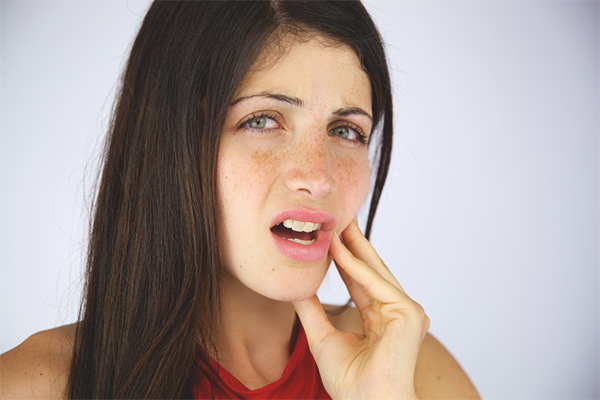



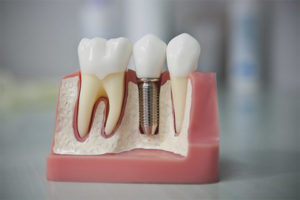



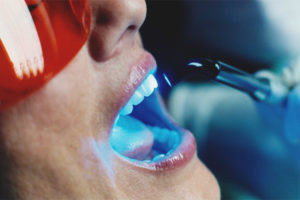
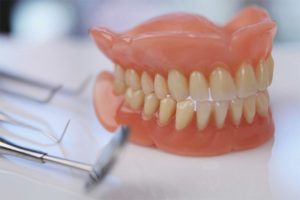

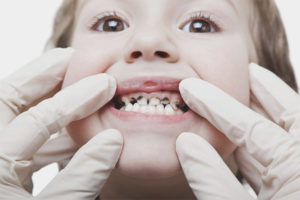
To send